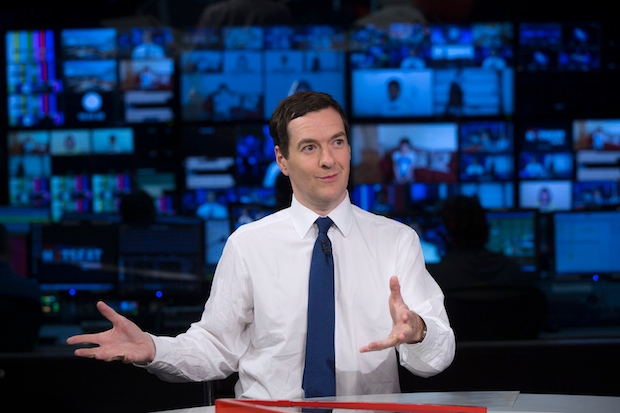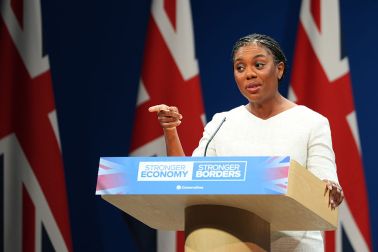There should always be celebration when a sinner repents, and so it’s great to see George Osborne’s belated conversion to the cause of budget surpluses. As the above graph shows, he has not seemed in a rush to hit surplus himself – giving him many more years of increasing the national debt. James Forsyth summed it up brilliantly: Osborne is the St Augustine Chancellor: give me fiscal responsibility, but not yet! And today, he will add something: when I get there, let’s make it illegal for anyone not to balance the budget again! In economics, as in much else, converts are always the most zealous.
Osborne’s new plan—to have surpluses mandated by law—makes a lot of sense. Normally, I’m against legal devices by which one government seeks to tie the hands of its successor. It’s just not the British way, until Gordon Brown started it and the Tories felt they had to retaliate. But as the Chancellor says, countries who had such a law (Sweden, Canada, Australia) were far better-able to handle the crash.
It’s also worth saying that, in his new proposal, Osborne is shifting conventional orthodoxy. Gordon Brown’s old rule was that it was okay to ‘borrow to invest’, which was his tricksy way of saying he’d ramp up the national debt even in the boom times. And at the time, the consensus of British economic commentators was behind him. This ended up in the bizarre situation of Brown being censured by the EU during the boom years for having huge deficits – and Osborne promised to match his spending plans. Osborne signed up to a consensus which was to have disastrous consequences for the economy, and for his party. When the crash came, the Tories could not say ‘I told you so’, because they didn’t.
So now, there are new rules. If Osborne manages to make a surplus in the next five years (and it’s still a big if) he has promised that he’ll always run a surplus while times are good. It’s a good idea, although he would have done himself (and his party) a big favour had he advocated it before the crash.







Comments